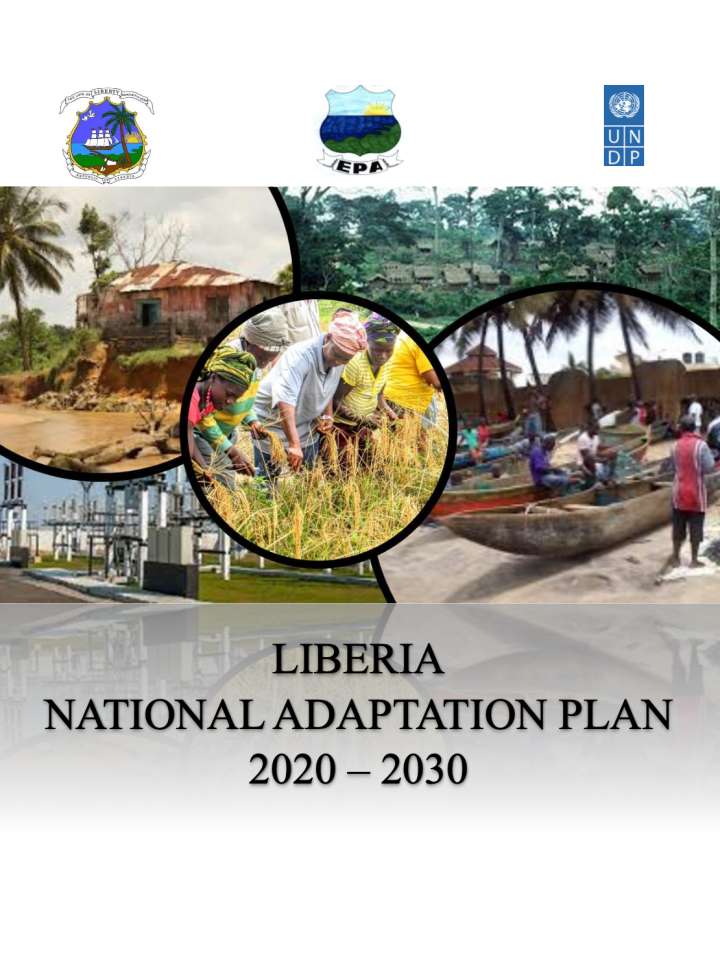National Adaptation Plan of Liberia 2020-2030
The Government of Liberia recognizes the threats posed by climate change and has taken action to address them. In this regard, the EPA coordinated the development of the National Climate Change Response Strategy in 2018. This National Adaptation Plan (NAP) marks a fundamental landmark in addressing its susceptibility and resilience to climate change. Climate change has contrary impacts on our country’s economic development. It threatens the realization of our Vision 2030 goals of creating a competitive and prosperous nation with a high quality of life. Liberia's economy is highly reliant on natural resources. Unpredictable rainfall patterns and floods will continue to impact the livelihoods and community assets negatively.
The purpose of this document is to provide an overall framework to guide the country in developing, coordinating, and implementing its NAP process. This document describes the benefits of the NAP process in the context of Liberia. It ensures that the NAP process does not unnecessarily add to the proliferation of national planning processes and related documents. Instead, the NAP process aims to strengthen existing planning processes by integrating climate change adaptation considerations. Specifically, the objectives of this NAP process are to:
- Provide a framework and procedures for sharing of information of scientific, technical, and traditional knowledge on climate change risk management and develop capacity-building measures;
- Coordinate sectors (including both public and private sector stakeholders) as well as institutions on climate change risk management and universities using awareness with a focus on the improvement of climate risk management actions; and
- Encourage participation from sector stakeholders and line agencies responsible for key sectors to identify and propose measures to promote adaptation to reduce climate change risk.
Explore further
